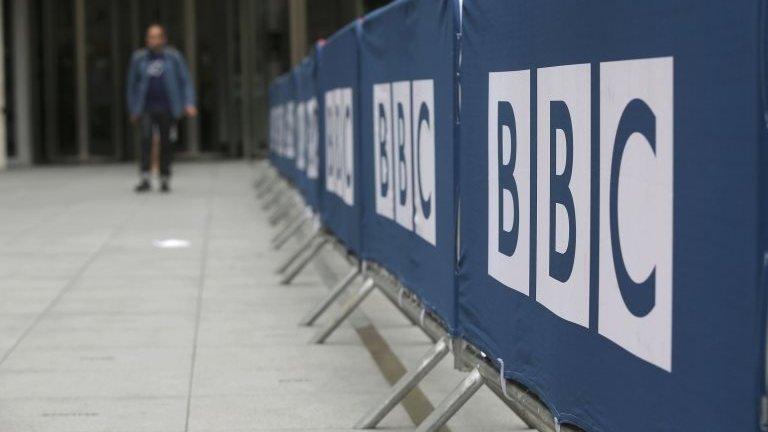BBC Trust launches public consultation on the future of the BBC
- Published
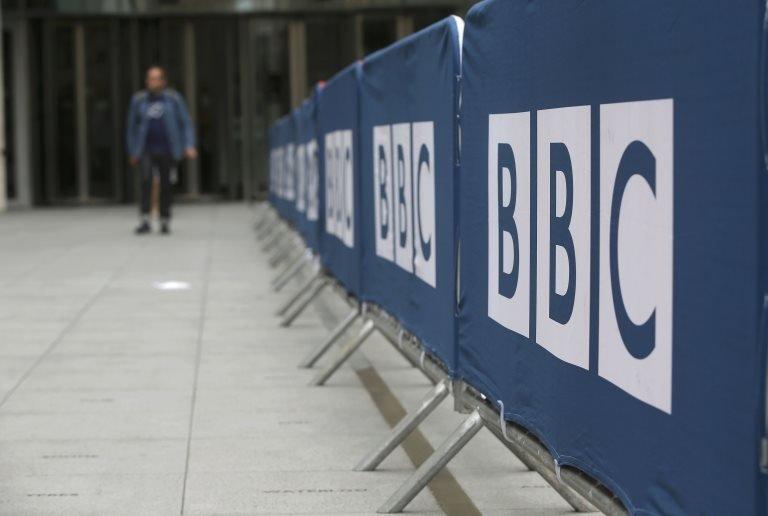
The BBC's Royal Charter is up for renewal next year
Questions about the size of the BBC and its independence from the government are being asked in the largest ever public consultation on the broadcaster.
The BBC Trust has launched a questionnaire to discover audiences' opinions of the government's proposals for the future of the organisation.
It also asks viewers to rate potential replacements for the licence fee.
"The most important voice in the debate is that of the public," said Trust chairwoman Rona Fairhead.
"We'll ensure it is heard."
Audiences can take part in the survey on http://www.bbc.co.uk/tomorrowsbbc
The questions include: "How important is it that the BBC operates independently from Government and politicians, and from any commercial and business interests?"
It also asks viewers to say whether the BBC should make "more" programmes, or whether it currently "provides far too much".
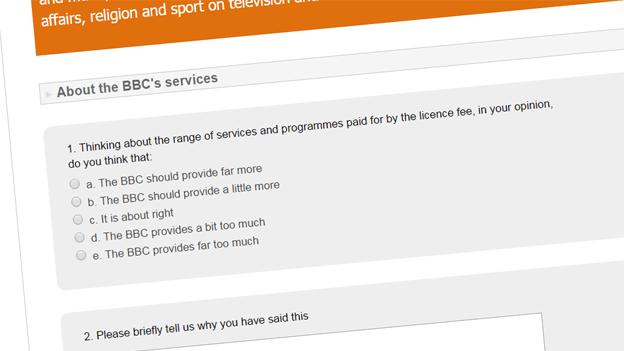
The questionnaire poses 16 questions about the future of the BBC
Licence payers' views will inform the Trust's response to the Government's Green Paper on the future of the BBC.
The paper, published last week, asked whether the corporation should be "narrower" and "cheaper".
It also set out proposals for updating or replacing the licence fee.
In its initial response to the Green Paper, external, published alongside the consultation, the Trust said: "The BBC's mission to 'inform, educate, entertain' is well-understood and well-supported by the public and should continue.
"Those three words capture the essence of the BBC, which has always blended distinctive public services with a broad popular appeal. Its future success will depend on getting that blend right."
The Trust, which serves the interests of licence fee payers, rejected calls for the BBC to be funded by subscription, saying it was "at odds with the principle of a universal public service".
It was also critical of the BBC's undertaking to take on the cost of free TV licences for the over 75s.
Making the decision behind closed doors was "regrettable" the Trust said, as "it has served to give an impression that the BBC is another part of Whitehall - which it is not".
The Trust also called for the BBC charter period to be extended to 11 years, to separate negotiations from the general election.
Simultaneously, the National Union of Journalists has launched a legal challenge to the licence fee deal, claiming it is "legally flawed".
The union has written to the BBC Trust saying the deal "unlawfully discriminates against persons under the age of 75, and is in breach of the BBC's rules of governance".
It asks for a substantive reply by 29 July, otherwise it plans to take the decision to the court for judicial review.
In a separate development, the cross-party Culture Select Committee has announced it will hold its own inquiry into the BBC's Charter Renewal.
Conservative MP Jesse Norman, who chairs the committee, said: "BBC Charter Review is a topic which directly or indirectly touches us all.
"That is why it is essential that the arguments made both by the BBC and by the Government be given full and rigorous scrutiny by Parliament, in the public interest."
- Published20 July 2015
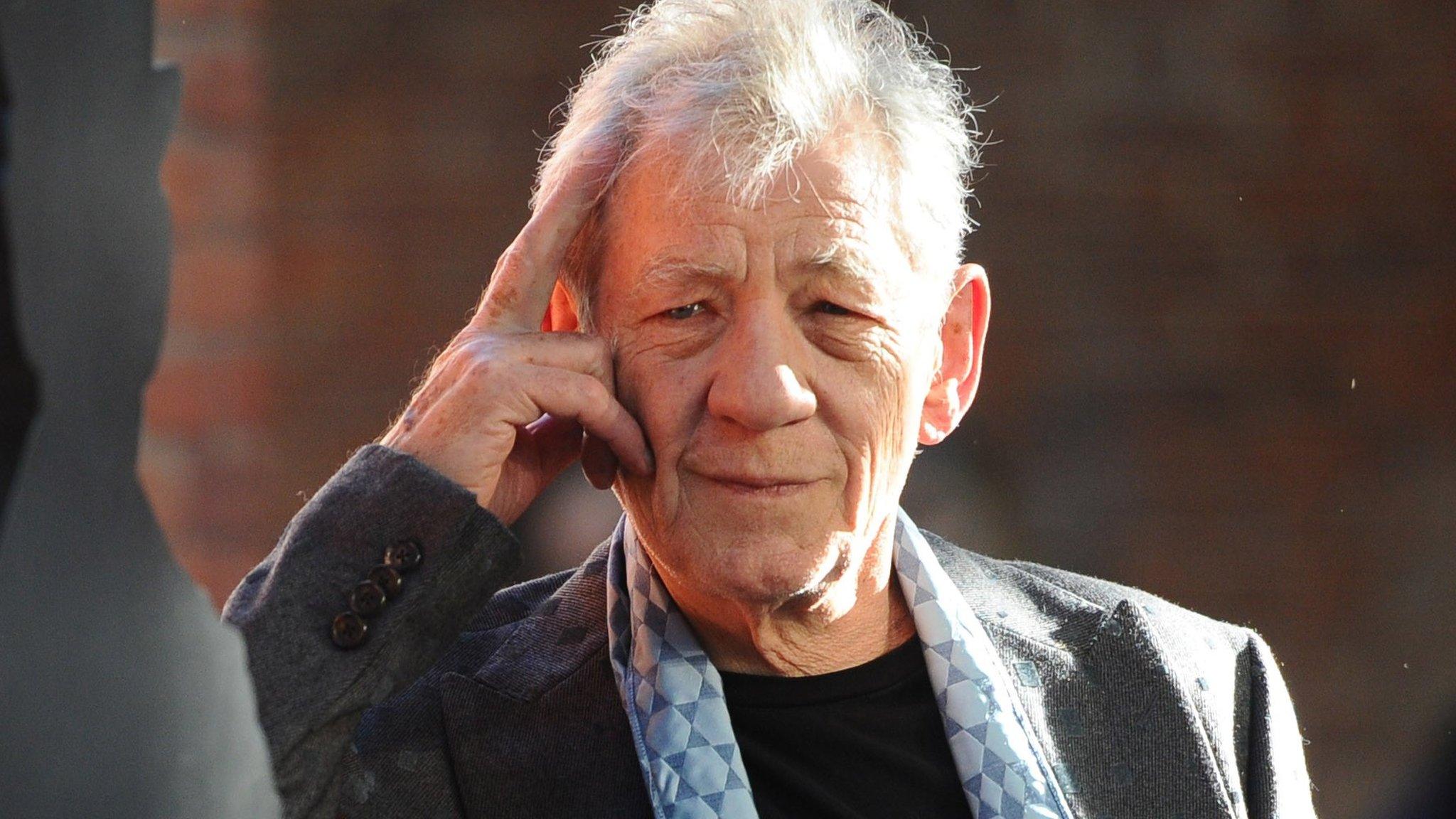
- Published16 July 2015
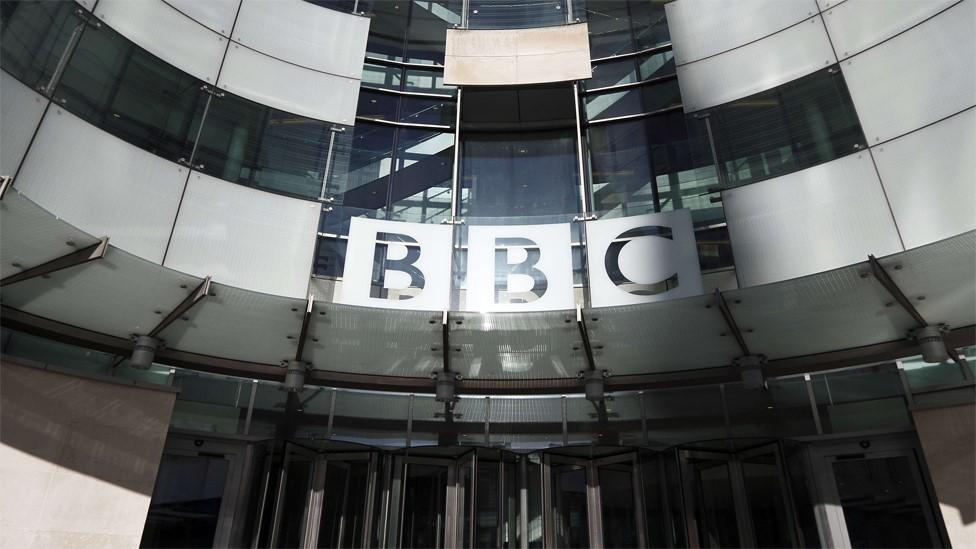
- Published16 July 2015
